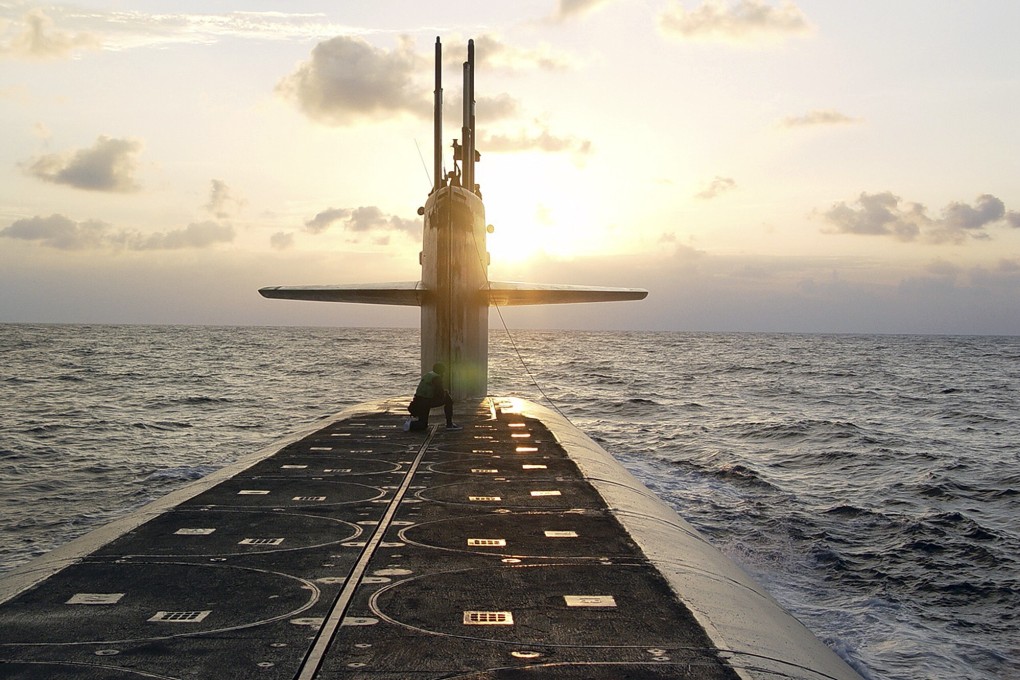Advertisement
China hits out at ‘highly irresponsible’ Aukus defence pact between US, Britain and Australia and warns of Pacific arms race
- Beijing says the new three-way partnership that will give Australia nuclear-powered submarines will ‘severely damage’ peace and stability
- Foreign ministry spokesman challenges Canberra to reflect on whether it sees China as a ‘partner or a threat’
Reading Time:4 minutes
Why you can trust SCMP
99+

China has warned that Australia’s new defence agreement with the United States and Britain is “extremely irresponsible” and risks triggering an arms race in the Asia-Pacific region.
The surprise announcement on Wednesday of the newly formed “Aukus” alliance between the three Anglosphere nations means Australia will become the second country in the world, after the UK, to receive nuclear-powered submarine technology from the US.
The partnership will see the United States and Britain providing Australia with the technology to deploy the vessels in future.
Advertisement
Only six countries in the world – America, Britain, China, France, India and Russia – currently operate nuclear-powered submarines.

03:51
US, UK, Australia announce ‘historic’ military partnership in Pacific
US, UK, Australia announce ‘historic’ military partnership in Pacific
US officials said these vessels could be deployed for longer periods than other subs, were harder to detect and would provide a stronger deterrent.
Advertisement
The leaders of the three nations stressed Australia will not be fielding nuclear weapons, but officials said they would look into jointly developing other advanced technologies such artificial intelligence, cyber, undersea and quantum technology.
Advertisement
Select Voice
Choose your listening speed
Get through articles 2x faster
1.25x
250 WPM
Slow
Average
Fast
1.25x